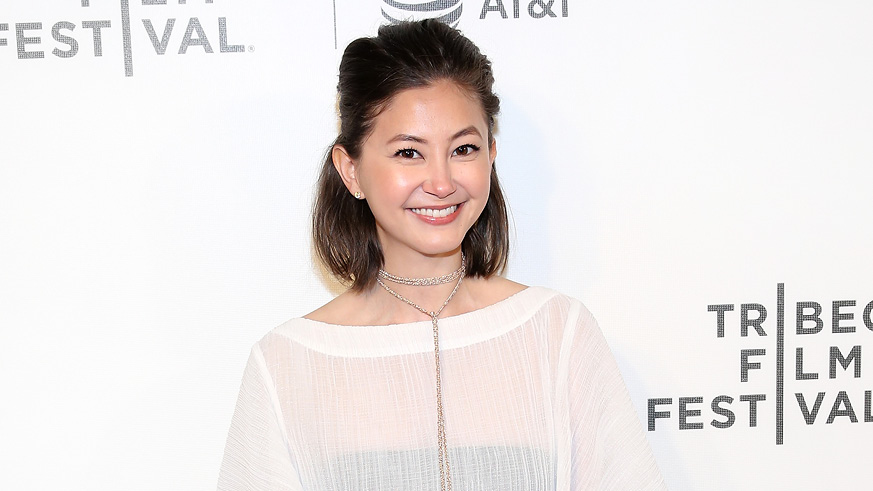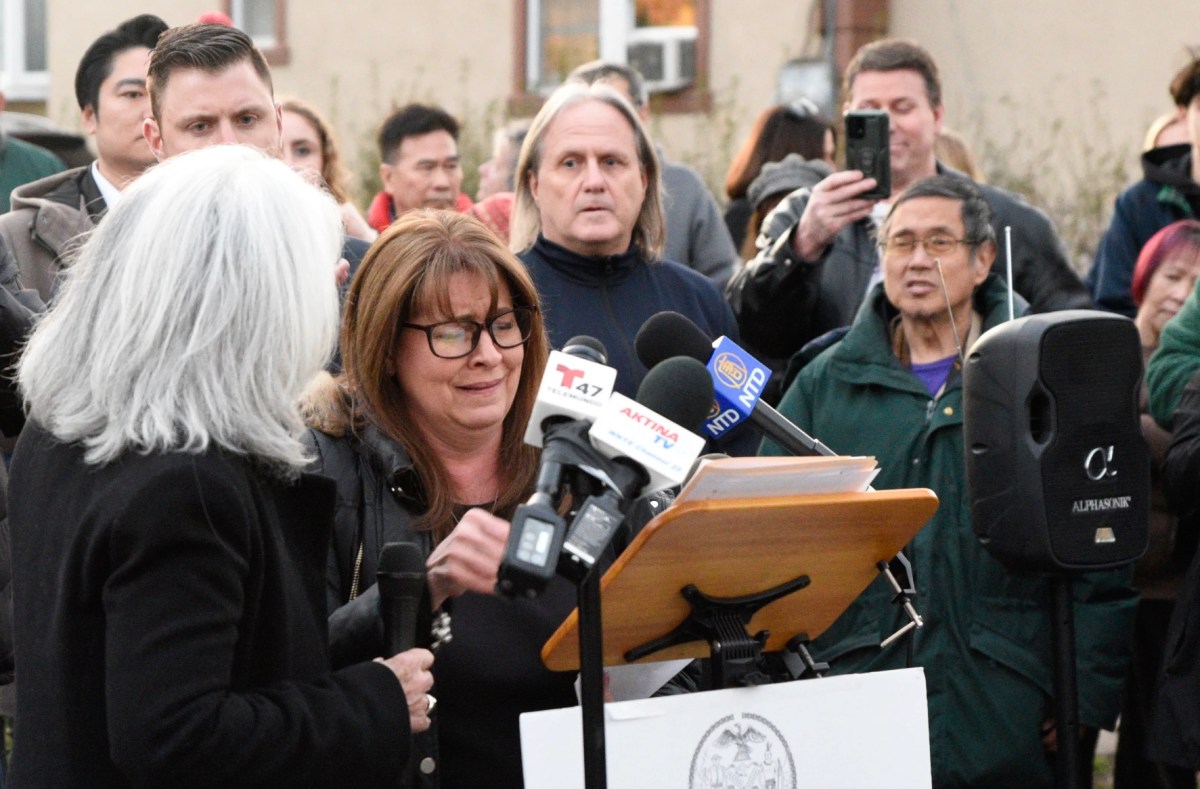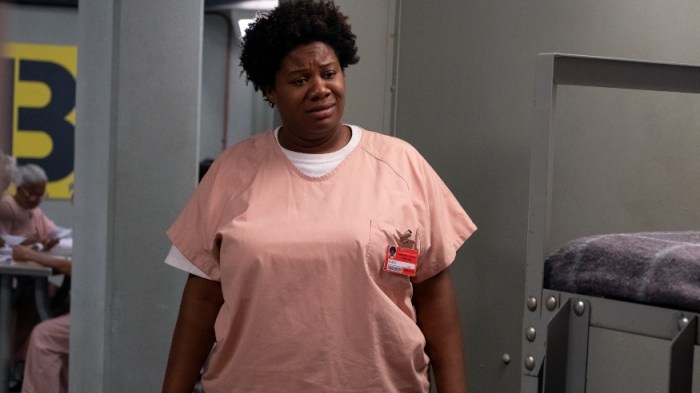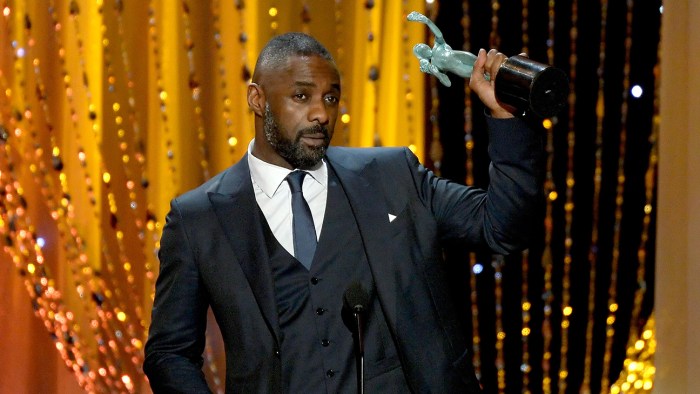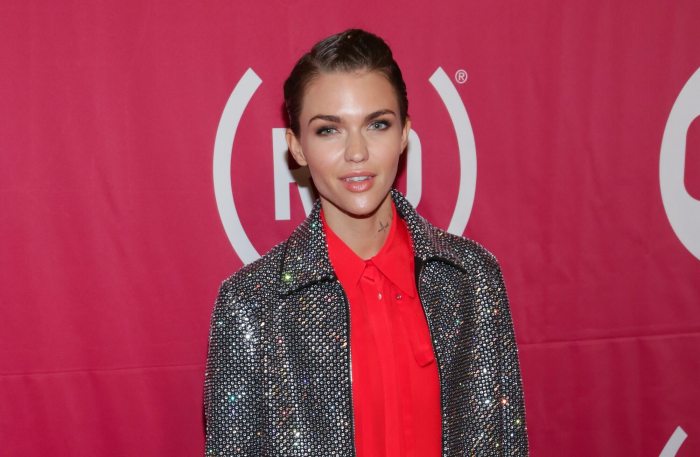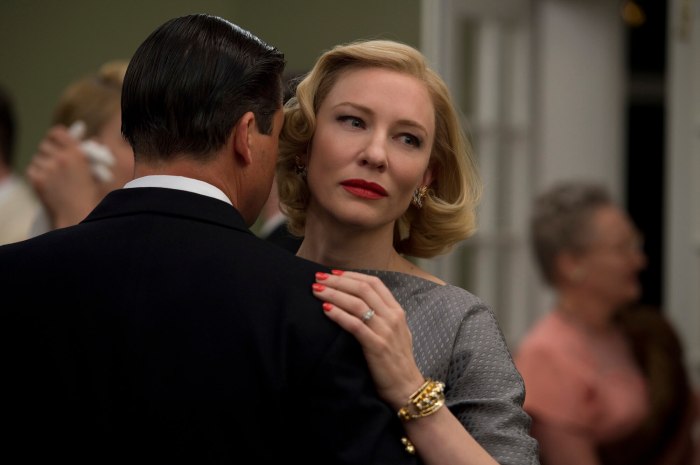The kind of loveable jailbirds are back! Netflix is blessing us with a fifth season of “Orange is the New Black,” premiering on Friday, June 9. And this season won’t be shy about broaching some heavy stuff.
We left the ladies at one of the most intense and pivotal moments at Litchfield. Poussey (Samira Wiley), is tragically killed during a prison protest, in a move that mirrors the Black Lives Matter movement — particularly the tragic killing of Eric Garner — and causing all hell to break loose. The inmates riot and get their first, tiny taste of power. Tensions are high, and the stakes are even higher.
At the center of it all is Brook Soso, Litchfield’s resident millennial, and Poussey’s big love. We caught up with Kimiko Glenn, who plays the now grieving and heartbroken inmate, about her theater kid beginnings, saying goodbye to Poussey, and the struggles of being an Asian-American actress in Hollywood.
Brook can be relentlessly naive. How is that going to change in the face of Poussey’s death?
At this point she’s lost some of that. She has learned from her lessons. Poussey gave her renewed hope in that there’s a life to be lived in this prison that isn’t so awful and [her death] is a huge wake up call. It really shakes things up big time for both her and the entire prison.
What was it like to say goodbye to Samira Wiley?
It was a huge loss. Everyone loves her. I felt like there was a real death happening! Samira was the heart of the show in a way. And she was such a fun scene partner. So selfishly, I was like, “Where are you going! We had so much fun!” There was a huge 21-hour day where — we were in the cafeteria scene where she dies — we kind of said goodbye to her. It was almost like a funeral. I was super emotional. It was not an easy one to let go of, for sure, but she’s doing great. “The Handmaid’s Tale” is the best show ever.
“Orange is the New Black” paralleled Black Lives Matter last year. Why do you think it’s important for television to pay tribute to what’s going on politically in the real world?
The entertainment industry has a huge responsibility in shaping how society thinks. I know by watching media it shapes how I think. We tell stories, but I think the reason we’re able to get deeper into people is because you start to care about the characters, you start to contextualize. And you realize that people are people and you can’t just put them in certain categories or groups.
You’ve done “Spring Awakening,” and “Waitress.” Were you a theater kid?
I started out as a theater kid through and through. I never even had the thought, “Oh I’m going to be an actor in television or film.” I’ve had four years on “Orange” and I really love the medium of television. There are endless possibilities. From an artistic expression standpoint, I love singing on stage, and that makes me feel whole and extremely satisfied. I’m getting more into the idea of film stuff. But I’m never gonna not go back to theater. It would be like running away from home.
In the past, you’ve talked a bit about being typecast — your mom is Japanese and your father has German, Scottish and Irish heritage. What struggles have you faced as an Asian-American actress?
It’s difficult because it’s always in my mind, that I look this way, and it never would have been honestly if I were white. Or if I didn’t have someone telling me all the time, “Oh, you’re Asian.”
Every turn is stressful. There were so many times I didn’t get cast when I was younger, because they wanted a blonde or something. It was heartbreaking as a kid to hear that — because it’s like, ‘Wow, this is something I can’t control at all!’ I feel like I deserve things, I feel like I’m working my butt off and I’m talented. But at the end of the day, people see you as they see you. That’s been a constant struggle.
What’s next for you?
I’m actually starting to write more. My creative juices are flowing. Sitting on the subway, I people watch and I think about certain people — I wonder where they’re going and what their home looks like. So that was some inspiration for starting to write stuff on my own. There are also so many stories to be told that don’t need to be through a white lens. I don’t see it often enough and when [I] do I’m almost taken aback by it. That type of storytelling to me is most interesting.

